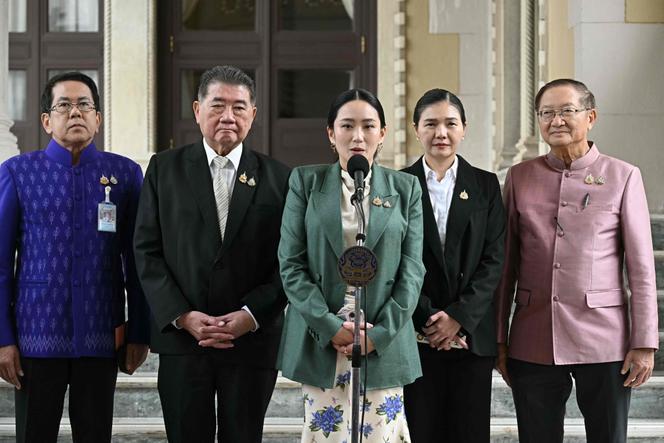


Thai Prime Minister Paetongtarn Shinawatra was suspended by the country's Constitutional Court on Tuesday, July 1, while her father went on trial for royal defamation in the latest setbacks for the country's dominant political dynasty. Prime Minister Shinawatra took power less than a year ago and will be suspended while the Constitutional Court investigates whether she breached ministerial ethics during a diplomatic spat with Cambodia. The Constitutional Court accepted the complaint for investigation and said in a statement that by a 7-2 majority it "suspends the respondent from Prime Ministerial duty from 1 July until the Constitutional Court has made its ruling."
The probe could take weeks or months, and Thai media reports said that Deputy Prime Minister Suriya Jungrungreangkit, from her own Pheu Thai party, will initially take charge. Shinawatra told reporters at Bangkok's Government House that she accepted the ruling, adding: "It's always been my intention to do the best thing for my country," she said. "I'd like to apologize to Thai people who are frustrated about this."
A long-standing territorial dispute between Thailand and Cambodia boiled over into cross-border clashes in May, killing one Cambodian soldier. When Shinawatra called Cambodian ex-leader Hun Sen to discuss the tensions, she called him "uncle" and referred to a Thai military commander as her "opponent," according to a leaked recording that caused widespread backlash.
Conservative lawmakers accused Shinawatra of kowtowing to Cambodia and undermining the military, and alleged she breached constitutional provisions requiring "evident integrity" and "ethical standards" among ministers. A conservative party abandoned the ruling coalition and around 10,000 people protested Shinawatra's administration in Bangkok over the weekend. Her approval rating plunged to just 9%, down from around 30% three months ago, according to a Bangkok University survey.
Thailand's king on Tuesday approved Shinawatra's cabinet reshuffle after her allies quit. She assigned herself the culture minister position and is due to take up the position on Thursday, but it is unclear if she could do so while under investigation.
Thailand's affairs have been driven for years by a battle between the conservative, pro-military, pro-royalist elite and the Shinawatra clan, whom they consider a threat to the kingdom's traditional social order.
Separately on Tuesday, Shinawatra's father Thaksin, the Shinawatra family patriarch, arrived at a Bangkok criminal court to face charges of breaching strict lese majeste laws used to shield Thailand's king from criticism. The charges against Thaksin stem from a 2015 interview he gave South Korean media, and he faces up to 15 years in jail if convicted. The proceedings are set to last for weeks, with a verdict not expected for at least a month after that.
The elder Shinawatra was ousted in a coup in 2006, while his sister, Yingluck Shinawatra, suffered the same fate in 2014, and other prime ministers from their political movement have been sacked by court rulings. After 15 years abroad, the elder Shinawatra returned to Thailand in August 2023. He was immediately ordered to serve an eight-year jail term for historic graft and abuse of power charges, but was taken to the hospital on health grounds, and later pardoned by the king.
